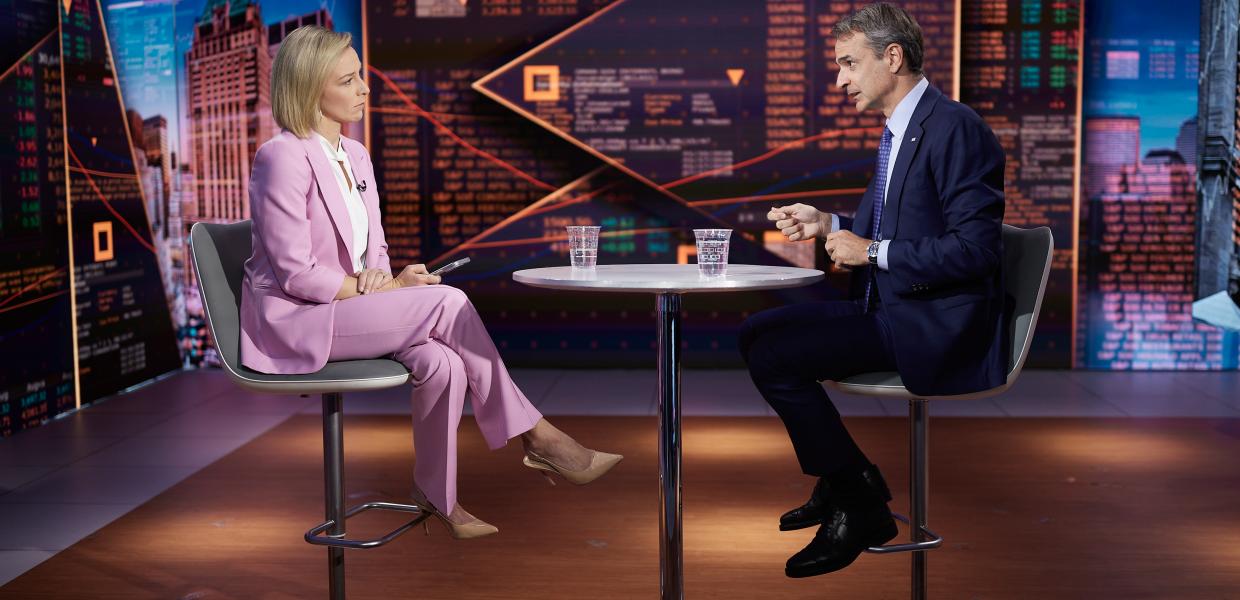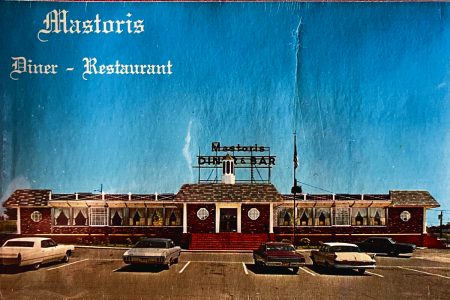By Thodoris Lapanaitis
Prime Minister Kyriakos Mitsotakis in his address to the UN General Assembly tomorrow is expected to deliver a forceful denial of Turkish President Recep Tayyip Erdogan’s charges that Greece engages in lethal pushbacks of refugees and migrants in the Aegean, while underlining that Ankara is behaving like the neighbourhood bully in the Aegean and the Eastern Mediterranean, and as an unreliable partner in NATO, embracing Russia and thus placing itself outside of the Western Alliance.
Refugee issue a possible pretext for a Greek-Turkish military clash by ‘accident’
In his speech, Mitsotakis is expected, on the one hand, to present specific numbers and data regarding the flow of refugees and migrants from the shores of Turkey to the Greek islands, rebutting Erdogan’s claim that Greece is engaging in illegal pushbacks, and on the other hand to contrast Greece’s dedication to the objectives and actions of NATO in the Russo-Ukrainian war with Turkey’s stance of cunning neutrality in the Alliance’s clash with Russia and friction with China, effectively and clearly abandoning the fold of the Western Alliance.
Shift from ‘Blue Motherland” to use of refugees as cudgel against Greece
Most recently, Ankara has at least temporarily set aside the tactic of stressing its expansionist “Blue Motherland” doctrine, and instead is slamming Athens over its alleged mistreatment of refugees at sea.
That shift was apparent in Erdogan’s speech at the UN, and many analysts have suggested that it may presage a move by Turkey to exploit the refugee issue as a pretext for provoking a Greek-Turkish military “accident”, at sea in the Aegean and on land in the Evros Greek-Turkish border region.
That scenario is predicated on an “accident” involving the Hellenic Coast Guard and its Turkish counterpart, so that Erdogan can greatly escalate tensions without provoking a direct Greek-Turkish military clash, which could cause a backlash against Ankara in the West, which has denounced the revisionism of Putin’s Russia [which many believe Erdogan wants to emulate] in its war against Ukraine, with a rallying of countries against Ankara’s posture.
The ‘other path’ toward escalation in the Aegean, Thrace
What is certain is that Turkey, by escalating tensions to such a degree that they take on the characteristics of a Cold War conflict, is making clear that its paramount aim is to achieve the objectives of its “Blue Motherland” doctrine.
Essentially, the war in Ukraine has led Erdogan to pursue another path, that of exploiting the refugee issue in order to advance Ankara’s objectives in the Aegean, where it disputes Athens’ sovereignty over the Greek islands, and in Evros and Western Thrace, where, (in contrast to the Lausanne Treaty that characterises the region’s minority as Muslim), it speaks of a “Turkish Minority” [with pretences of being the protector of its rights].
It is in this framework that Mitsotakis in his speech is expected to rebut Erdogan’s rhetoric regarding refugees and alleged pushbacks, over which Greece has been criticised in the past.
Erdogan’s aim of joining Shanghai Cooperation Organisation tests NATO’s patience
Last week, Erdogan attended the summit of the Shanghai Cooperation Organisation (SCO), as Ankara has taken on the status of a “dialogue partner”.
Asked by journalists whether Turkey’s objective is to join the SCO, he responded, “Naturally, that is the aim.”
NATO Turkexit?
Clearly, Erdogan was aware of the weight and significance of such a statement, and how it would be received in the West.
Members of the China-led organisation include Russia, India, Pakistan, and several Central Asian republics
Putin’s representative: It’s either NATO or the SCO, Turkey can’t be in both
Straight on the heels of the Turkish president’s declaration, the Kremlin announced that if Turkey wishes to join the SCO, it must withdraw from NATO.
Though Turkey has not officially applied for membership of the SCO, Vladimir Putin’s special representative to the SCO, Bakhtiar Hakimov said Ankara must choose between NATO and the SCO.
Hakimov said that there are specific membership rules, one of which is “not participating in activities and blocs that are hostile to or have turned against an SCO member”.
He underlined that Turkey is a member of NATO, “which declared Russia not just an opponent, but enemy number one”.
Mitsotakis’ Bloomberg interview: ‘We are at war with Russia; Turkey not part of Western Alliance’
“We are waging war against Russia,” Mitsotakis told Bloomberg in an interview today [though NATO is obviously engaged in a proxy war against Moscow, the Alliance, the US, and other member-states have never clearly stated that they are at war with Russia].
The Greek PM also offered very sharp criticism of Ankara’s stance in NATO and towards Greece, declaring that Turkey “is not part of what we are accustomed to speaking of as the Western Alliance”.
Escalation of Turkish provocations against Greece
“In general, we have seen a crescendo of Turkish rhetoric against Greece, and that is unacceptable. I think that this is something that has been stressed to Turkey by the leadership of the European Union and the United States as well. We do not need yet another source of geopolitical instability in the Eastern Mediterranean when we are waging war against Russia and trying to support Ukraine,” Mitsotakis underlined.
“Disputing the sovereignty of a NATO ally is obviously unacceptable. This will not be tolerated by Greece and it essentially demonstrates that Turkey is a country that is no longer part of what we call the Western Alliance. In this period, President Erdogan is refusing to meet with me. I have said openly that I am always prepared for discussion, and I believe that it is in the interest of regional stability to substantially reduce high-pitched rhetoric. It helps no one, not even [Erdogan] himself, if he continues down this path,” the PM concluded.





